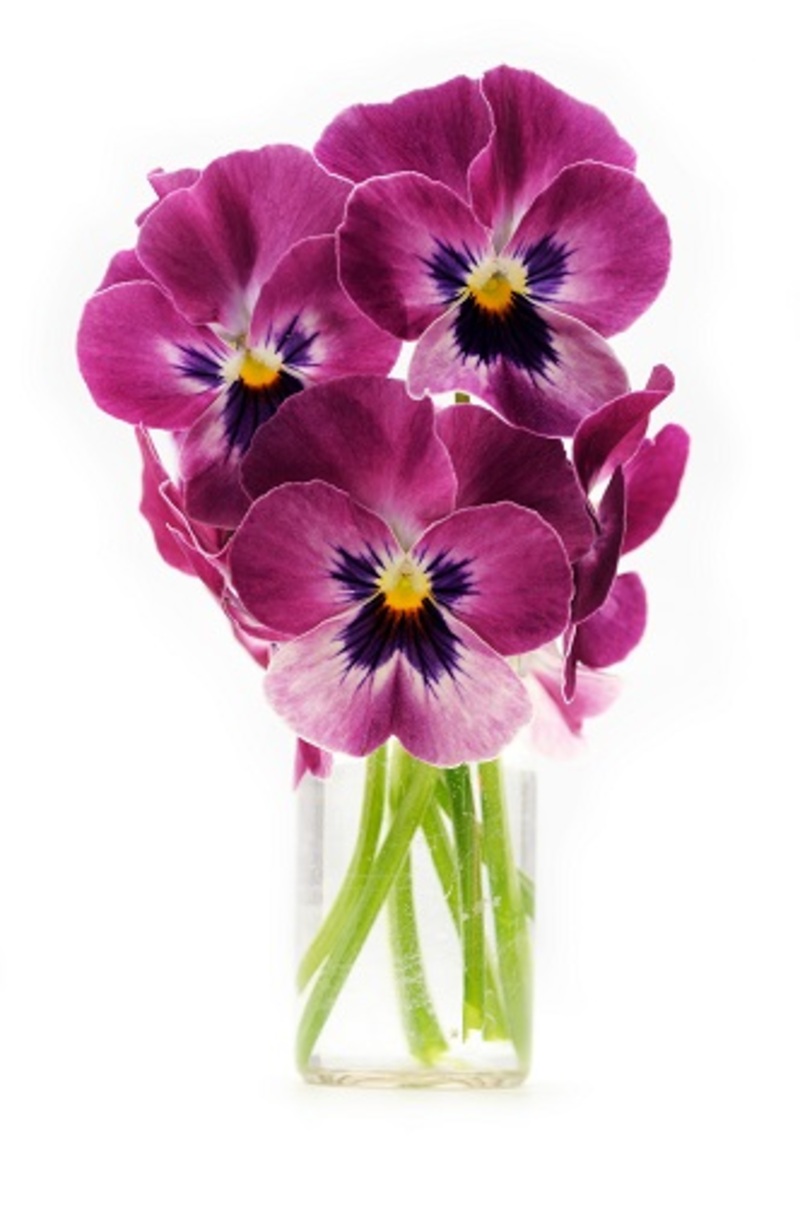Peony Flowers: A Deep Dive into Their Symbolism and Color Meanings
Posted on 23/08/2025
Peony Flowers: A Deep Dive into Their Symbolism and Color Meanings
Peony flowers, with their lush, delicate blooms and intoxicating aroma, have been adored in gardens and floral arrangements for centuries. These elegant and showy blossoms aren't just a visual feast--they carry deep meanings and play important roles in cultural history. In this comprehensive article, we explore the rich symbolism of peony flowers, delve into the fascinating stories behind them, and examine what their diverse colors signify around the world.

Introduction to Peony Flowers
Peonies (Paeonia) belong to a genus of flowering plants native primarily to Asia, Europe, and Western North America. Known for their large, often ruffled petals and vibrant colors, peonies are prized both for their ornamental beauty and their profound symbolic value.
- Family: Paeoniaceae
- Lifespan: Perennial (can thrive for decades!)
- Flowering Season: Late spring to early summer
- Common Varieties: Herbaceous, Tree, and Intersectional (Itoh peonies)
It's no wonder the peony flower has earned its esteemed spot in art, literature, and various traditions. Let's take a deep dive into the symbolism of peony flowers and unravel the hidden meanings behind their enchanting blooms.
The Symbolism of Peony Flowers
Peony symbolism is rich and multifaceted, reflecting the cultures in which these flowers are found. For centuries, this flower has been used as a symbol of romance, prosperity, honor, and compassion. In addition, peony flowers have been utilized in medicine and rites, making them more than just a pretty face in the garden.
Peonies in Chinese Culture
Peonies are the national flower of China and have long been a revered motif in Chinese art, literature, and folklore. The flower is affectionately called "the king of flowers" and is often associated with wealth, prosperity, good fortune, and royalty.
- Imperial Symbolism: During the Tang dynasty, peonies symbolized imperial power, honor, and the opulence of the court. Paintings of peonies decorated royal gardens and palaces.
- Traditional Festivals: The Luoyang Peony Festival, held annually in Luoyang, China, has celebrated the beauty and significance of peony flowers for over 1,400 years.
In Chinese weddings, red peonies are common in bridal bouquets and decorations. They're believed to bring a happy marriage and descendants.
Peony Symbolism in Western Traditions
In Europe and North America, peonies signify romantic love and abundance. In Victorian times, peonies symbolized bashfulness owing to their tendency to droop under the weight of their huge blossoms, as well as the notion that nymphs were said to hide within their petals.
- Romance: Peonies are common in wedding bouquets, signifying a blessed union and happy married life.
- Compassion & Healing: In ancient medicine, peonies were thought to possess healing powers and were used for treating various ailments.
The peony has also been called the "queen of the garden" in Western horticulture, symbolizing the pinnacle of natural beauty and grace.
Color Meanings: What Peony Flower Colors Represent
Like many flowers, the significance of the peony varies with its color. The meaning behind peony flower colors is a language unto itself. Here is a comprehensive guide to the main hues of peony flowers and what they symbolize:
Red Peony Flowers: Passion, Honor, and Respect
- Meaning: Red peonies are most often associated with love, respect, honor, and prosperity.
- In Chinese culture, red is a color for joy and festivity. Gifting a red peony is a wish for good luck or a happy marriage.
- In romantic contexts, a red peony bouquet expresses deep love and passionate emotions.
White Peony Flowers: Purity, Apology, and Remembrance
- Meaning: White peonies symbolize purity, innocence, and new beginnings.
- They're also used to convey apologies, making them a thoughtful gesture for seeking forgiveness.
- White peony blooms are common in both wedding and funeral rituals, representing a cycle of life and renewal.
Pink Peony Flowers: Romance, Grace, and Feminine Beauty
- Meaning: Pink peonies embody romantic love, gentleness, and femininity.
- Pink hues are the go-to peony color in weddings and anniversaries, symbolizing a tender, lasting relationship.
- They often appear in Mother's Day bouquets, celebrating matriarchal love, grace, and gratitude.
Yellow Peony Flowers: New Beginnings and Warmth
- Meaning: Yellow peonies represent joy, happiness, and new beginnings.
- These blooms radiate positivity and are perfect for celebrating achievements or wishing someone well on a fresh journey.
- Rare and unique, yellow peonies are a prized gift for someone special to convey admiration.
Purple Peony Flowers: Mystery, Nobility, and Success
- Meaning: The purple peony is often connected to royalty, honor, and mystique.
- These regal blossoms are gifted to honor accomplishments or milestones.
- Purple peonies are a luxurious and sophisticated choice--ideal for conveying a sense of admiration or high regard.
Coral and Orange Peonies: Boldness and Enthusiasm
- Meaning: Vibrant coral or orange peonies send a message of energy, enthusiasm, and boldness.
- They're ideal for celebrations, graduations, or as a motivation boost for a friend starting a new chapter.
Peony Flowers in Different Cultures Around the World
Japan: A Symbol of Good Fortune and Honor
In Japan, the "botan" (peony) is revered as a "King of Flowers," especially in samurai culture. Japanese peonies symbolize bravery, honor, and good luck. The peony motif frequently appears in kimono designs, family crests, and tattoos as a charm for protection and success.
Western Culture: Love and Abundance
In Western symbolism, peonies have long represented romance and a happy marriage. That is why peonies are often the flower of choice for wedding arrangements and anniversary bouquets. In folklore, however, peonies also represent bashfulness or shyness--a nod to their delicate appearance and tendency to hide in the foliage until blooming.
Greek Mythology: The Healing Goddess Paeonia
The word "peony" is believed to trace back to ancient Greek mythology. According to legend, Paeon, a student of Asclepius, the god of medicine, used the flower to heal the wounds of the gods. Out of jealousy, Asclepius tried to kill Paeon, but Zeus saved him by transforming him into the peony flower, which is why peonies are associated with healing and protection.
Peony Flower in Art and Literature
Throughout history, peony flowers have featured prominently in fine art and literature across continents. They symbolize everything from fleeting beauty to the steadfastness of love.
- Chinese Watercolors: Peonies are painted with meticulous detail to celebrate prosperity.
- Victorian Novels: These blooms act as metaphors for shyness, beauty, or blossoming romance.
- Modern Decor: The allure of peony flowers inspires textile patterns, wallpapers, and home accessories around the globe.
Peony Symbolism in Weddings and Bouquets
The versatility of peonies makes them a top choice for wedding bouquets and arrangements. Whether fresh or dried, peonies add a touch of elegance, meaning, and lush beauty to any occasion. Their range of color symbolism allows couples to communicate specific wishes for their marriage:
- Red Peonies: Desire and respect
- Pink Peonies: Romance and everlasting love
- White Peonies: Purity and a new beginning
It's no surprise that the peony flower is recognized as the traditional floral symbol for the 12th wedding anniversary, representing a happy and prosperous union.
Growing and Caring for Peony Flowers
If you wish to include these symbolic blooms in your garden, peonies are an excellent choice. They are hardy, long-lived perennials that can provide breathtaking blooms year after year.
- Sunlight: Peonies thrive in full sun (at least 6 hours daily).
- Soil: Well-drained, fertile soil is ideal for robust growth.
- Water: Moderate; avoid soggy conditions, as peonies dislike wet feet.
- Spacing: Plant them with generous spacing to allow for air circulation.
- Care: Remove spent blooms and provide support for heavy blossoms.
Peonies are deer-resistant and require little maintenance once established. Given the right conditions, your peony plants can flourish for generations, making them perfect for family heirloom gardens.

Interesting Facts About Peony Flowers
- Longevity: Some peony plants live for over 100 years!
- Medicinal Uses: Traditionally, both the roots and flowers have been used to treat headaches, asthma, and reproductive disorders.
- Largest Flower: Some peony blossoms span up to 10 inches in diameter.
- Sweet Aroma: Many peony varieties are famed for their delightful fragrance.
- Symbolic Gifts: Peonies are the official flower for the twelfth wedding anniversary, a classic gesture for celebrating commitment and growth.
Conclusion: The Timeless Allure of Peony Flowers
There is no denying the enduring enchantment of the peony flower. Steeped in a rich tapestry of symbolic meanings and folklore, peony flowers represent love, honor, prosperity, and healing across different cultures and eras. Whether in a bridal bouquet, a mother's day arrangement, or your own garden, peonies continue to be cherished for their beauty--and for the deep, layered meanings they carry.
When choosing a peony, consider its color and the symbolism you wish to convey. The next time you gift or grow these exquisite blossoms, you'll be expressing more than words ever could.
For more on the meaning of peony flowers and tips for growing your own spectacular garden, keep exploring our blog!
```Latest Posts
Peony Flowers: A Deep Dive into Their Symbolism and Color Meanings
The Art of Giving Red Roses on Valentine's Day
Unlock the Wisdom of Your Birth Flower and Its Influence on You







